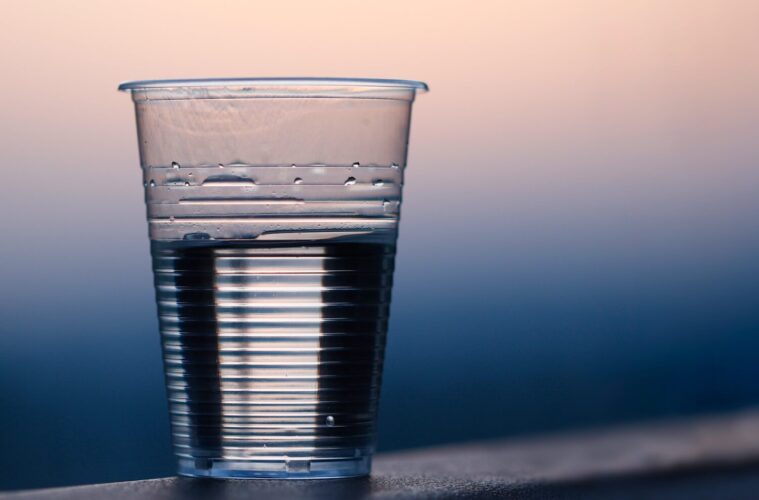In a 4-1 vote, on Tuesday, Nov. 28, the Irvine City Council approved aspects of a proposed citywide waste ordinance that calls for a ban on single-use plastics and polystyrene items.
Despite the approval, leaders in Irvine opted to pause on immediate citywide implementation and directed staff to perform more research and community outreach. However, the council agreed to immediately eliminate single-use plastic and polystyrene — commonly known as Styrofoam — items from use at city operations and city-sponsored events.
Once enacted citywide, Irvine’s single-use plastic ban could become the most far-reaching in the state. In terms of prohibited items, the ban aims at many single-use plastic items, including cups, water bottles, straws and utensils. The ordinance will also include single-use items containing intentionally added chemical classes known as ortho-phthalates, bisphenols, and PFAS.
Instead, the city of Irvine is encouraging businesses that utilize single-use items to prepare for a shift in behavior by transitioning to items that are 100% compostable or recyclable.
However, the council remained cautious about abruptly implementing such impactful measures. In terms of implementation, a staff report indicated that a yearslong “phased roll-out” schedule would be utilized, beginning in 2024.
Until then, the council members directed city staff to refine the scope of the ban and prepare a cost-impact analysis for the businesses and industries impacted once the ordinance takes effect.
Irvine Council member Mike Carroll voted against the ban, emphasizing he felt that the city had not performed adequate, unbiased outreach within the community to get a realistic concept of how businesses or the public would be impacted.
Additionally, Carroll pointed to the ongoing development of state legislation focused on regulating the plastic production industry could guide Irvine in implementing similar laws.
Specifically, Carroll said, SB 54, California’s Plastic Pollution Prevention and Packaging Producer Responsibility Act, signed by Gov. Gavin Newsom in 2022, extends responsibility to plastic producers to create fully recyclable or compostable packaging or plastic foodware by 2032.
“I will support sending this entire thing back to the Sustainability Commission to look at SB54. And to take a months-long process looking through it carefully and determining what we need to do – what’s practical, and quite frankly, doing a deep dive on SB54, including the important exemption on recyclable plastics,” Carroll said.
SB 54, according to CalRecycle, aims to cut the use of single-use plastic by 25% and recycle 65% of single-use packaging and food ware within the next decade.
Carroll added that he thought the council was moving too fast considering the widespread implications related to SB 54.
“My understanding is there’s going to be huge lists of materials that manufacturers are going to have to grapple with this spring,” he said. “We can let the state do its job, and be the vanguard on this issue, rather than some disjointed effort here in Irvine.”
Councilmember Dr. Kathleen Treseder, who is a PhD and the Howard A. Schneiderman Endowed Chair in the School of Biological Sciences at UC Irvine, explained that she originally brought this plastic ban to the council in July, after receiving feedback from her students at UC Irvine.
Treseder, who voted for Irvine to adopt the plastic ban ordinance, said that the issue of plastic pollution is an issue of top concern for students.
“I asked [students] year after year — what is the environmental issue that they are concerned most about? And it is by far plastics — even more than climate change, and they’re very worried about climate change.”
Yet, from Treseder’s perspective, the problem with plastics begins with the petroleum industry
“The reason that we have a single-use plastic issue is because we have the petroleum industry. They have a product they need to sell — petroleum. They see the writing on the wall, and they know that they’re not going to be able to sell gasoline for very much longer. So they’re looking for new markets. And the new big market is plastics,” she said.
Treseder also said that the usage of non-recyclable, single-use plastic is becoming more common.
“They’ve been doing ‘plasticization,’ where they push for things to be made out of plastic that were never made of plastic before — and don’t necessarily need to be made out of plastic. It’s a way for them to sell their product. So reusable plastic, I don’t have a problem with, it’s the single-use plastic where it’s used for a day or a moment and then thrown away,” she said. “That plastic lasts forever.”
Advertising disclosure: We may receive compensation for some of the links in our stories. Thank you for supporting Irvine Weekly and our advertisers.

